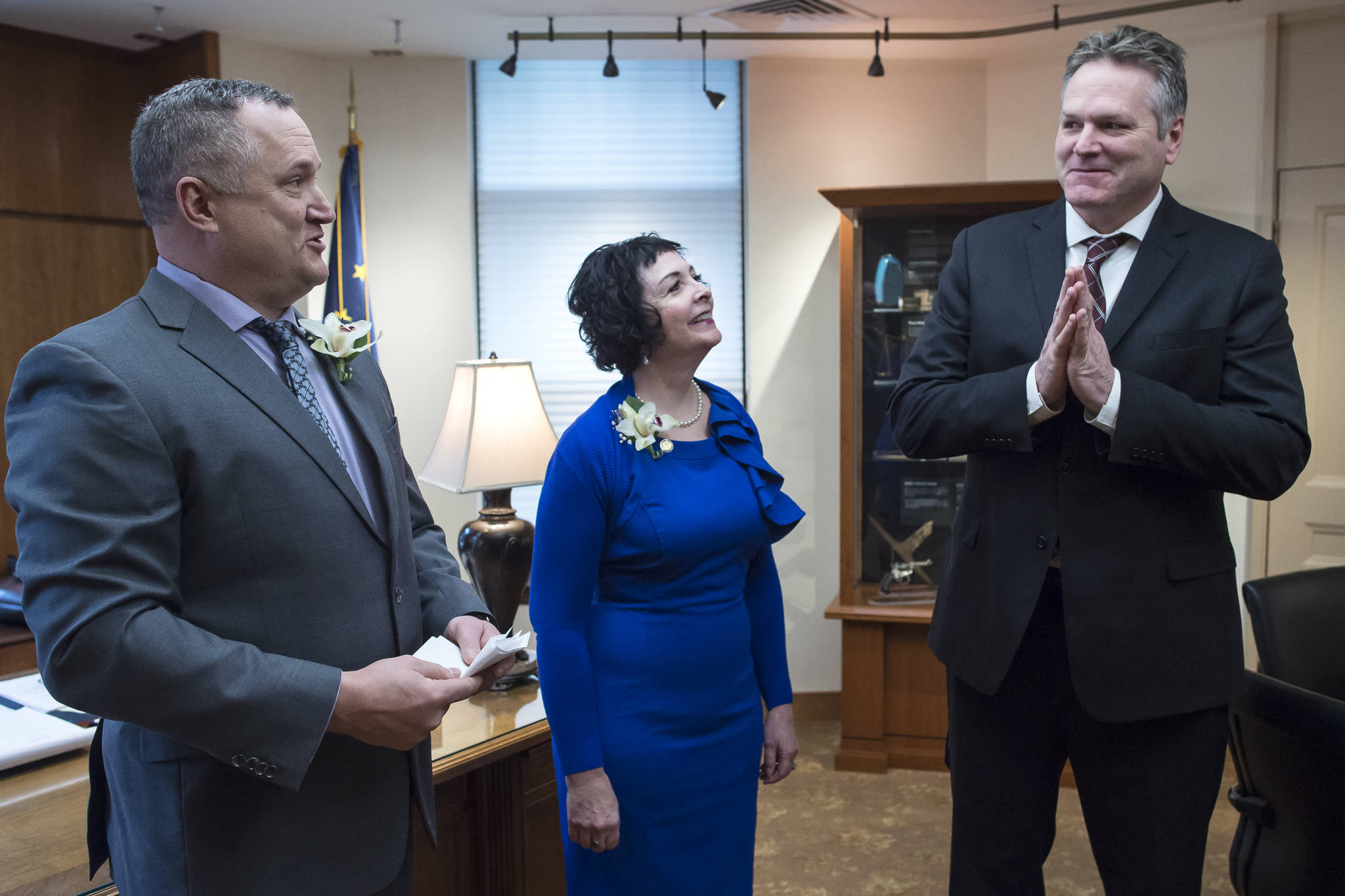Here we go again. The difference this time, though, is we have a reasonable governor who is rationally trying to permanently resolve these reoccurring issues by enshrining them in the state constitution.
You’ll hear politicians, bureaucrats and special interests howling that this will restrict their ability to fund essential government services — nonsense. It will however provide discipline and require discussion with “We the People” to determine what essential services are, and how and by whom they should be efficiently provided.
To accomplish this, Gov. Mike Dunleavy has proposed three constitutional amendments. One would create a formula to put a cap on spending, another would require a vote of Alaskans to increase taxes, and finally, he would constitutionally guarantee the PFD.
I strongly support these amendments and urge every Alaskan who wants to put a lid on state government growth and preserve the PFD to get up off of your posteriors and go to work. You can help by aggressively encouraging your family and friends to do likewise. You can do this by becoming politically active on this one issue.
[Opinion: Creative solutions to Gov. Dunleavy’s bold vision for Alaska]
Passing Senate Joint Resolutions 4, 5 and 6 is the single most important issue our legislative representatives must pass this session. Your involvement is very critical, as it takes a two-thirds vote of each the House and Senate to pass them so we can vote on them in the next general election. That’s clearly a major challenge, but one we can and must do. Then all we have to do is to pass them with a majority vote and Alaska will be in a much better place.
Let’s briefly discuss each amendment.
First, the Permanent Fund is made up almost exclusively of royalty income — that is 12.5 percent of the value of the extracted oil. It is critically important to understand the royalty income rightly belongs to the people and should be distributed to them as equitably as possible, while the severance tax is rightly imposed by the state government and should be used to fund appropriate government services.
These are two distinctly different pots of money and should serve different purposes. Former Gov. Jay Hammond and I did not agree on the income tax repeal but we did agree that the royalty income does belong to the people directly. To quote Hammond in 1980 while discussing royalty income, “We are taking wealth that belongs to the people and making sure that at least some of it is funneled through their pockets instead of through their elected officials.”
Hammond clearly understood that the dividend and ownership rights should be treated differently than tax revenue. He also strongly wanted a dividend provision in the original constitutional amendment establishing Permanent Fund legislation, but the Legislature would not go along so he had to drop it — too bad so sad.
It’s accurate to say that back in the 1980s, Hammond and I both wanted the PFD enshrined in the constitution. I still do and would like to think that he would also. Let’s do it now — we’ve waited long enough.
Next, a constitutional spending limit. This was approved in the early 1980s, but it was literally a joke. The Legislature was reacting to strong public opposition to their spending spree, and to pacify the peasants, they created a spending limit title, but they knew the formula was so high that it would never be activated. I was there and saw them literally joking and laughing about pulling a fast one on the people. Let’s pass the governor’s spending limit, which is calculated to work.
Lastly and very importantly, let’s constitutionally protect our right to vote on any new taxes. Many jurisdictions require voter approval on tax increases as it is a traditional American concept.
We can make this happen. Make your opinion known to one and all, particularly your legislators. Tell them you just want the opportunity to vote on them. Getting these three constitutional amendments passed through the Legislature is the most important issue before us this session.
Let’s just do it.
• Dick Randolph lives in Fairbanks. My Turns and Letters to the Editor represent the view of the author, not the view of the Juneau Empire.

